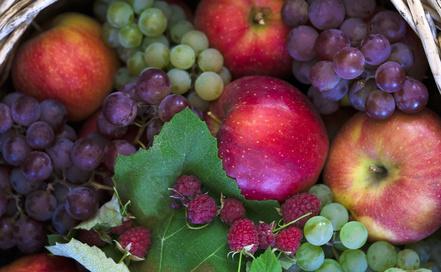 Hands-on learning provides students with the know how to apply their lessons to real-life situations. Nutrition education may be a component of your school’s wellness policy, but have you considered a hands-on approach? School gardens have been shown to increase both fruit and vegetable preference and consumption as well as improve academic achievement (Klemmer 2005) (Parmer 2009). A school garden can serve as a multidisciplinary “living laboratory” that actively engages children in nutrition education and horticulture.
Hands-on learning provides students with the know how to apply their lessons to real-life situations. Nutrition education may be a component of your school’s wellness policy, but have you considered a hands-on approach? School gardens have been shown to increase both fruit and vegetable preference and consumption as well as improve academic achievement (Klemmer 2005) (Parmer 2009). A school garden can serve as a multidisciplinary “living laboratory” that actively engages children in nutrition education and horticulture.
One study looked at children’s fruit and vegetable preference, knowledge, and consumption in schools that adopted a school garden as a part of their nutrition program (Klemmer 2005). The study found that nutrition education alone proves to be effective in improving children’s preference for fruits and vegetables. However, when paired with a school garden program, students are even more likely to prefer and consume more fruits and vegetables. Students that helped to grow the fruits and vegetables not only indicated a greater preference, but also rated them higher on a taste scale.
It is well known that well-nourished bodies lead to more able students. In addition, not only do school gardens provide an environment of experiential learning that leads to better eating habits, they have also proved to increase overall science scores in middle school students. Another study found that the science achievement of students who participated in school garden program was significantly higher than their non-gardening peers (Parmer 2009). Nutrition education is fundamental to fostering healthy learners, plus, students achieve more and eat healthier when participating in a school garden. It’s a win-win!
For ideas on how to begin a school garden in your district, visit the USDA’s page titled School Gardens and Gardens Curriculum.
For more school garden resources, click here!
Contibutor
Katherine Baildon, Cornell Center for Behavioral Economics in Child Nutrition Programs
Sources
Klemmer, C.D., T.M. Waliczek, and J.M. Zajicek. “Growing Minds: The Effect of a School Gardening Program on the Science Achievement of Elementary Students.” Horttechnology, 2005: 448-452.
Parmer, PhD, Sondra M., Jill Salisbury-Glennon, PhD, David Shannon, PhD, and Barbara Struempler, PhD. “School Gardens: An Experiential Learning Approach for a Nutrition Education Program to Increase Fruit and Vegetable Knowledge, Preference, and Consumption among Second-grade Students.” Journal of Nutrition Education and Behavior, 2009: 212-217.
For more information visit
Benefits of Growing Your Own Fruits and Vegetables
School Gardens and Gardens Curriculum from USDA
